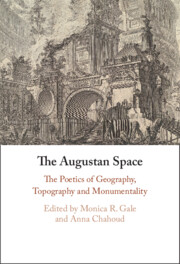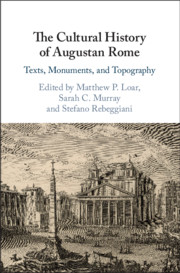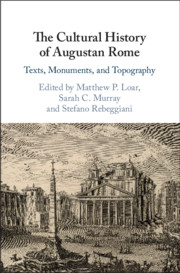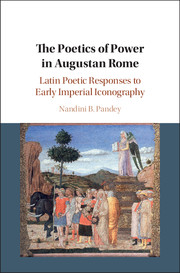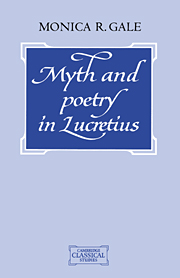The Augustan Space
Augustus famously boasted that, having inherited a city of brick, he bequeathed a city of marble; but the transformation of the City's physical fabric is only one aspect of a pervasive concern with geography, topography and monumentality that dominates Augustan culture and – in particular – Augustan poetry and poetics. Contributors to the present volume bring a range of approaches to bear on the works of Horace, Virgil, Propertius and Ovid, and explore their construction and representation of Greek, Roman and imperial space; centre and periphery; relations between written monuments and the physical City; movement within, beyond and away from Rome; gendered and heterotopic spaces; and Rome itself, as caput mundi, as cosmopolis and as 'heavenly city'. The introduction considers the wider cultural importance of space and monumentality in first-century Rome, and situates the volume's key themes within the context of the spatial turn in Classical Studies.
- Maintains a close thematic and chronological focus, on the construction and representation of space and on Augustan poetry respectively
- Includes a substantial introduction which contextualizes the contributions within both theoretical and historical frameworks
- Includes contributions by leading international scholars in the field
Product details
June 2024Hardback
9781009176071
278 pages
229 × 152 × 18 mm
0.564kg
Available
Table of Contents
- Introduction: the spaces of Augustan poetry Monica R. Gale
- 1. The city in Horace's Sermo: physical spaces and political spaces Sandra Citroni Marchetti
- 2. excucurristi a Neapoli: Virgil, Augustus and the art of disappearing Melanie Möller
- 3. Poetic and Imperial spaces in Propertius, Books 1–3 Monica R. Gale
- 4. Horace on sacred space: the Odes and Augustan temples Stephen Harrison
- 5. Roman topography, politics and gender: the cult of Bona Dea in Propertius 4.9: An answer to Aeneid 8? Jacqueline Fabre-Serris
- 6. aurea nunc, olim siluestribus horrida dumis: the luci Molorci and the Augustan space in Virgil's Georgics and Aeneid 8 Florence Klein
- 7. Hippolytus and Egeria in the woods of Aricia (Virgil, Aen. 7.761–82 and Ovid, Met. 15.479–551): where Greek myth and Italic myth come together Laura Aresi 8. locum tua tempora poscunt: topography in Ovid's Fasti S. J. Heyworth
- 9. imperii Roma deumque locus: Rome as celestial city Gianpiero Rosati
- 10. The rise and fall of Virgil's sublime carthage Siobhan Chomse
- 11. Eccentric poetry: Ovid, exile and the prototype of a 'periphery' literature Marco Fucecchi
- 12. Virgilian heterotopias: multiple entrances to the underworld Giovanna Laterza
- 13. loci desperati: possibilities and boundaries of Augustan conceptions of space Jürgen Paul Schwindt.

